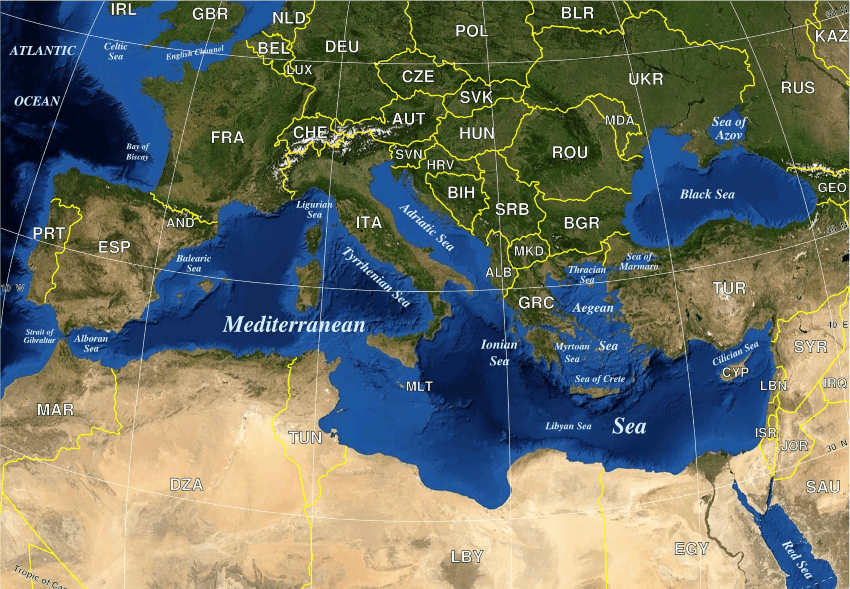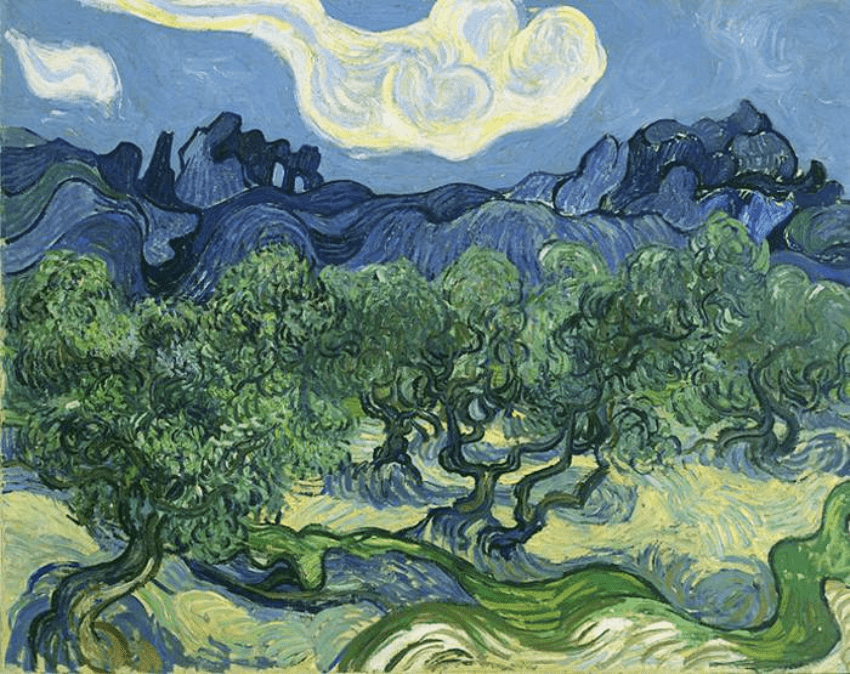Olive tree
The history of the Olive Tree is linked to Human history
The history of the olive tree began in ancient times: it was already present on the Mediterranean coast 12 million years ago. This leads us to an important consideration: not only was present in the world of plants long before man appeared on earth, but it is absolutely essential to our survival. Plants, and more generally all of nature, can live without man; we, on the contrary, are totally dependent on them.
Due to ever more serious problems, not least the pandemic, we are becoming increasingly aware that respect for nature can no longer be just theory. It needs to be transformed on a daily basis into responsible actions and behaviour, where each of us can do his/her part.
Since the earliest civilisations, there has always been a perfect partnership between man and nature that generates health and well-being for man and the planet, and we are all required to honour this precious and increasingly indispensable patrimony.
The olive tree in the Mediterranean area…
In the Bible, the Olive tree is the first tree to be referred to as /strong>”medicinal”. It was the first tree to be “domesticated” by man, in the sense that it enabled him to emerge from barbarism: thanks to the extraordinary potential of its cultivation, for the first time in history man was able to look at his peers without fearing them, without feeling them to be his enemies; before, on the contrary, the struggle for survival among men was fierce. This event undoubtedly represents an epochal and revolutionary turning point, one of the most significant for mankind.
The history of the olive tree and that of the peoples around the Mediterranean has been linked for at least seven thousand years, making it one of the most important and characteristic crops.

Seven thousand years ago man created the first farming villages. The cultivation of the Olive tree is a significant economic and cultural achievement: it requires botanical knowledge and an organised and well-established social structure, because many years of cultivation are needed before the fruits are harvested.
In present-day Israel, traces of the oldest known oil, extracted over six thousand years ago, have been found.
Five thousand years ago, while men were inventing writing, oil was already a very valuable product and merchants were crossing the sea and desert to take it to Egypt and Mesopotamia.
Phoenician navigators also sold oil and it is thanks to them that present-day Greece, Tunisia, Italy, France and Spain discovered the extraordinary properties of oil and learned about its cultivation techniques.
The Olive Tree in Greece…
In Athens, the Olive tree is exceptionally highly considered: it is a “sacred tree” and Aristotle’s laws strictly protect it (whoever uproots an Olive tree could be exiled or even killed).
You can read Aristotle’s “Vademecum on the Olive Tree” on this subject. This great consideration was most probably due to the fact that Aristotle knew the secret of the Plant.
Not forgetting that the citizens who won the games, which were held in honour of the goddess Athena, had a crown of intertwined olive branches placed on their heads.
The Olive Tree in Italy…
The Olive tree appeared in Italy about three thousand five hundred years ago and was spread by Greek merchants and colonists; but it was mainly from the 7th century B.C. that olive groves were planted in many Italian regions and oil was produced, which gave rise to a very flourishing internal trade. In Rome, the capital of the Empire, Latin authors wrote entire volumes teaching how to cultivate olive trees.
Fragments of oil amphoras used to transport oil formed an artificial hill in Rome called “Monte Testaccio”: this is a unique monument in the world, the result of a huge accumulation of amphoras.
From the end of the ancient world, oil became increasingly precious and rare: in Europe, it was reserved for a privileged elite or for religious rites.
The Olive Tree today…
The olive tree is undoubtedly the cornerstone of Mediterranean culture. From the Middle Ages, through the centuries, the traditions of today’s great olive-growing areas of Italy, Greece and Spain were born and consolidated.
The olive tree and oil are an indispensable presence in our daily well-being, as well as a noble reminder of our oldest and most authentic history.
The olive tree also represents a shared heritage: it is important to emphasise that the Mediterranean diet is still recommended by the WHO because it is considered the most complete, and its first ingredient is oil. In 2010, the Mediterranean Diet was declared a millenary cultural heritage by UNESCO.
Equally relevant is the fact that the WHO logo features an olive branch as its symbol. This olive branch is also present in the logo of our Italian Ministry of Health.
The Olive Tree has joined religions…
The olive tree has always inspired in the observer a deep sense of the sacred. The certainty of its presence in ancient times comes to us through myths and literature belonging to different peoples, cultures and ages.
It is no coincidence that the olive tree plays an important role in the three monotheistic religions of the Mediterranean: Christianity, Judaism and Islam. We find traces of it in the Hebrew culture: the Olive tree is mentioned in the Bible about seventy times, and it is already mentioned in the Book of Genesis written by Moses.
In confirmation of the millennial history of the Olive Tree, we mention how tradition has placed the “Mount of Olives” in front of ancient Jerusalem.
The very name of Jesus, Christos, means “the anointed one”. Jesus was warmly received by the crowd waving palm leaves and olive branches; in the Garden of Olives he spent the last hours before his Passion.
In the Christian religion the olive tree has a strong symbolic value: the olive branch held in the beak of the dove, for example, marks the end of the flood, symbolising peace and regeneration. Oil is also used in numerous liturgies, such as baptism, confirmation, priesthood and extreme unction.

Oil is also very important in Jewish religious rituals. The Torah, the core of Jewish religious tradition, forbids the consumption of most animal fats, contributing to the fact that olive oil is the main ingredient in Jewish cooking.
In the Koran, the sacred text of Islam, the olive tree is defined as “the blessed tree”, while the anthropologist Edvard Westermarck, in his essay Ritual and beliefs in Morocco, wrote: “in Islam it is the cosmic tree for excellence, the centre and pillar of the world, symbolising the universal man, the prophet“.
The Olive tree in myths and poems…
Homer mentioned the olive tree in his poems and made it a symbol of peace and life. The enormous trunk through which Polyphemus was blinded by Ulysses and his companions was made of the olive tree.
The king of Ithaca built his wedding bed for himself and Penelope, digging it out of the trunk of a mighty olive tree, the symbol of a strong and lasting union.
In ancient Greece, in Athens, there was what was considered the first Olive tree in the world, born from the spear of Athena and for this reason considered sacred and protected by guards. In Athens it was sacred to the goddess Athena, and it is an incredibly interesting fact that it was considered sacred by many peoples because of its very nature as a plant extraordinarily serving human health.
The winners in the Olympics were offered an olive wreath and a cruet of oil.
The ancient Romans, on the other hand, used to weave olive branches into wreaths to reward their most valiant citizens, not forgetting that, according to tradition, the twins Romulus and Remus were born under an olive tree.
The Olive Tree continues to inspire the culture of mankind…
In the last century, the Olive Tree has been particularly revalued all over the world: the international scientific community has dedicated more than sixteen thousand authoritative scientific studies to it.
The interest of scientists and doctors in the Olive tree has always been very great due to its great medicinal value and the fact that it is absolutely one of the most important plants for our health and well-being.
The Olive Tree continues, solemn and untiring, to inspire the culture of humanity: it has always been celebrated by the highest and most sublime minds, from prophets to philosophers, from writers to poets and artists to the greatest scientists.
Thank you from all of us, Sacred Olive Tree.



